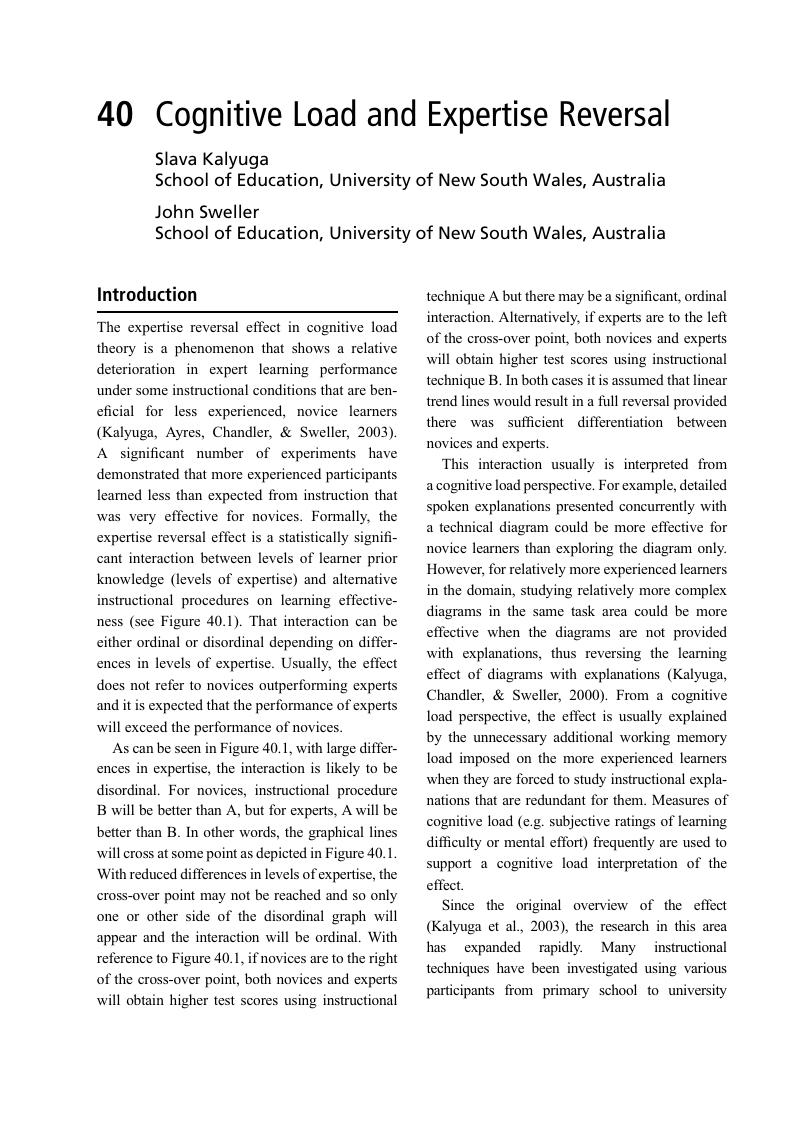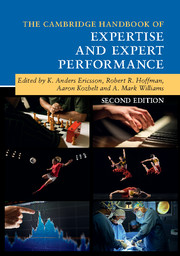Book contents
- The Cambridge Handbook of Expertise and Expert Performance
- The Cambridge Handbook of Expertise and Expert Performance
- Copyright page
- Contents
- Notes on Contributors
- Acknowledgments
- Part I Introduction and Perspectives
- Part II Overview of Approaches to the Study of Expertise: Brief Historical Accounts of Theories and Methods
- Part III Methods for Studying the Structure of Expertise
- Part IV Methods for Studying the Acquisition and Maintenance of Expertise
- Part V.I Domains of Expertise: Professions
- Part V.II Domains of Expertise: Arts, Sports, Games, and Other Skills
- Part VI Generalizable Mechanisms Mediating Types of Expertise
- Part VII General Issues and Theoretical Frameworks
- 38 The Differential Influence of Experience, Practice, and Deliberate Practice on the Development of Superior Individual Performance of Experts
- 39 Practical Intelligence and Tacit Knowledge: An Ecological View of Expertise
- 40 Cognitive Load and Expertise Reversal
- 41 Expertise and Structured Imagination in Creative Thinking: Reconsideration of an Old Question
- 42 Aging and Expertise
- Index of Subjects
- References
40 - Cognitive Load and Expertise Reversal
from Part VII - General Issues and Theoretical Frameworks
Published online by Cambridge University Press: 10 May 2018
- The Cambridge Handbook of Expertise and Expert Performance
- The Cambridge Handbook of Expertise and Expert Performance
- Copyright page
- Contents
- Notes on Contributors
- Acknowledgments
- Part I Introduction and Perspectives
- Part II Overview of Approaches to the Study of Expertise: Brief Historical Accounts of Theories and Methods
- Part III Methods for Studying the Structure of Expertise
- Part IV Methods for Studying the Acquisition and Maintenance of Expertise
- Part V.I Domains of Expertise: Professions
- Part V.II Domains of Expertise: Arts, Sports, Games, and Other Skills
- Part VI Generalizable Mechanisms Mediating Types of Expertise
- Part VII General Issues and Theoretical Frameworks
- 38 The Differential Influence of Experience, Practice, and Deliberate Practice on the Development of Superior Individual Performance of Experts
- 39 Practical Intelligence and Tacit Knowledge: An Ecological View of Expertise
- 40 Cognitive Load and Expertise Reversal
- 41 Expertise and Structured Imagination in Creative Thinking: Reconsideration of an Old Question
- 42 Aging and Expertise
- Index of Subjects
- References
Summary

- Type
- Chapter
- Information
- The Cambridge Handbook of Expertise and Expert Performance , pp. 793 - 811Publisher: Cambridge University PressPrint publication year: 2018



